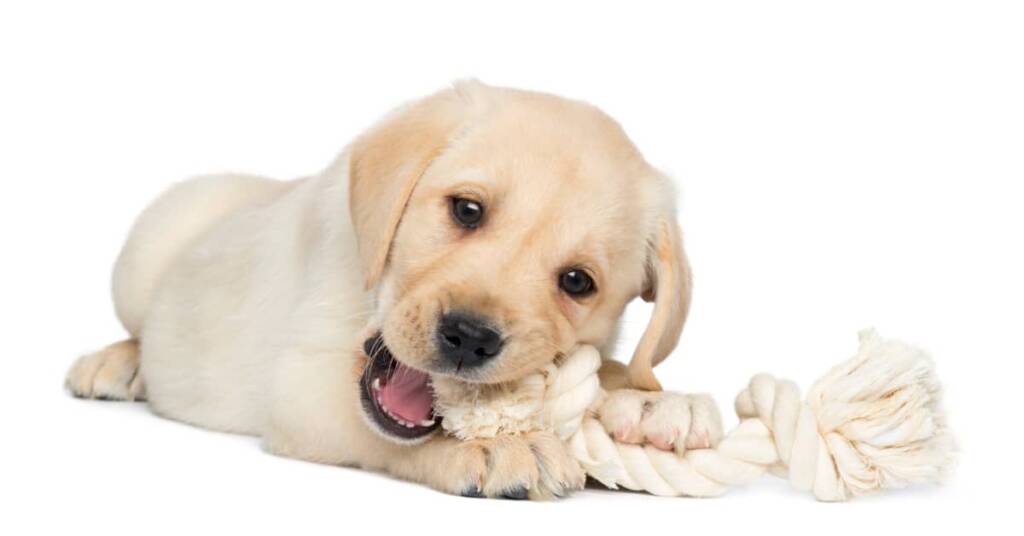Labradors eat so much: Labradors are known for their love of food, and that is something we all know. It seems as though Labradors are always in search of delectable things to eat and that this is what keeps them happy. Having a Labrador as a pet can be challenging both for the owner and the animal due to the eating habits they possess. Uncontrolled diets mean Labradors have a greater chance of developing obesity, metabolic diseases, and other conditions related to diet and metabolism. Owners of small pets are often faced with the challenge of trying to find the balance between a proper diet and a discipline that can sometimes be difficult to enforce. There is no need to worry about your Labrador’s eating habits because we have some tips that can help you manage your pet’s eating habits and keep them healthy by understanding the root causes behind their ravenous appetites.
Labradors eat so much – All about genetics
It was announced that a recent study from the University of Cambridge, published in the journal Cell Metabolism, in which over 300 Labradors participated, has found a genetic link explaining the dietary habits and the greater appetite of Labradors. According to the study, Labradors possess a natural mutation in the POMC gene that shows the dog has a protective mutation. There is a gene associated with this gene, which is responsible for triggering the “off” signal to the brain after the Labrador has eaten thoroughly. Those who have this gene mutated or deleted will not be able to send a message that will counteract the feelings of hunger that a Labrador experiences. This means that your Labrador is unaware of the fact that he is well-fed and continues to feel hungry, causing him to consume more than is necessary. In the long run, this can have a negative impact on one’s physical health as well as lead to obesity.
How to Manage Diet
Generally, if your puppy is exhibiting any behavior that seems to fall into this category, he or she may be at risk for the mutation. The key is to remember that there is a difference between overeating and the natural changes in diet that occur during your pet’s lifetime. It is natural for a Labrador to require more energy as it grows, and so they will need more food, especially during the time of puberty. A vital distinction must be made between this natural requirement and the symptoms of a genetic mutation. There is no need to panic if you think that your Labrador is eating more than it should be doing. You can follow the tips below to manage the issue.
1. Establish a mealtime schedule
It’s an excellent idea to create and enforce a strict schedule for mealtimes to contain the effects of the mutation and to teach your Labrador to only expect meals during those fixed intervals. The fact is that Labradors are excellent at keeping track of time, and their brains will automatically become accustomed to the meal schedule you set if it’s properly maintained and enforced.
2. Promote a diet rich in fiber
To manage eating disorders in Labradors, switching to a diet that consists of a balance of nutrients as well as an excess of fiber is very helpful. Protein and nutrient components in the diet provide the pups with the energy they need while the fiber content prevents them from feeling hungry. This means they will be able to eat less, as well as their appetites will be satisfied.
3. Use feeding bowls in a puzzle style
To combine these two methods, you should also use a puzzle-style feeding bowl or a maze-style feeding bowl. As natural hunters, Labradors are attracted to scavenging and hunting for food in their brains, which is why they are such good dogs. In addition to providing mental stimulation to your Labrador, puzzle-style slow feeders can also slow down their consumption while at the same time slowing down their consumption. By doing this, your Labrador will gain the mental satisfaction they instinctively crave as well as manage their eating habits.
In conclusion
In the case that none of these methods seems to be making a dent in the over-eating habits of your Labrador, you can visit your veterinarian to receive some general guidelines on how to help. Depending on the need, your veterinarian may be able to prescribe appetite suppressants for your Labrador to help control their appetite and prevent the onset of obesity and other diseases. It is important to keep in mind that Labradors are naturally prone to obesity and that managing their diet and mealtimes is essential to maintaining their health and quality of life.
How do I stop my Labrador eating everything?
It is recommended that you use a long line to prevent him from getting the food, but do not reel him in. You want him to be able to make that decision for himself, otherwise, he might not be able to make it when he is off the lead. As long as your dog is recalling really well, it would be best to keep him away from the tasty items that you have left out for training purposes so that he is able to focus on the training line.
Why is my Lab so obsessed with food?
A recent study has found that Labrador retrievers are more likely than other breeds to beg for treats and generally have a food obsession than other breeds. This is due to the fact that they have a specific gene mutation that defines them as different from other people. There was a clear connection between food-obsessed dogs and the gene mutation, even though not all of these dogs had this mutation.
How much should Labradors eat?
For a 60-pound Lab, feed 3 to 3-1/2 cups of food daily. It is recommended to give a 70-pound lab approximately 3-1/4 to 3-3/4 cups of food every day. A Lab weighing 80 pounds should be given 3-1/2 to 4 cups of food every day. I would recommend feeding a 100-pound Lab between 4-1/4 and 4-3/4 cups of food a day.
What do Labradors like eating?
Typically, labradors will only eat lean meats and fish, such as beef, chicken, pork, duck, turkey, salmon, and tuna, which are all considered human foods. Additionally, they can eat some fruits and vegetables, plain white rice and pasta, some dairy foods, such as plain yogurt, and a few nuts.
Do Labradors overeat?
A common characteristic of Labradors is their obsession with food, but scientists have struggled to figure out just why they are so obsessed with it. The result of this is that, no matter how much owners intend to feed their dogs, some labradors will always seek out extra food and, therefore, gain weight faster, even though overfeeding is definitely something owners should avoid.
Why do Labs stop eating?
When your Labrador won’t eat, this could be because he’s bored with the food he’s currently eating, he’s a picky eater, he prefers to eat at certain times, or he has a decreased appetite because of his age. Additionally, he could also be suffering from a cold, feeling stressed or anxious, having dental pain, or having an adverse reaction to a medication.
Can I feed my Labrador once a day?
As with most dogs, Labrador adults work best when they are fed on a regular schedule. It is recommended to give the dog twice a day as this allows him to eat and digest properly. Although puppies need to be fed more frequently compared to adults, as they expend far more energy and have smaller stomachs to allow them to hold the food they need.

